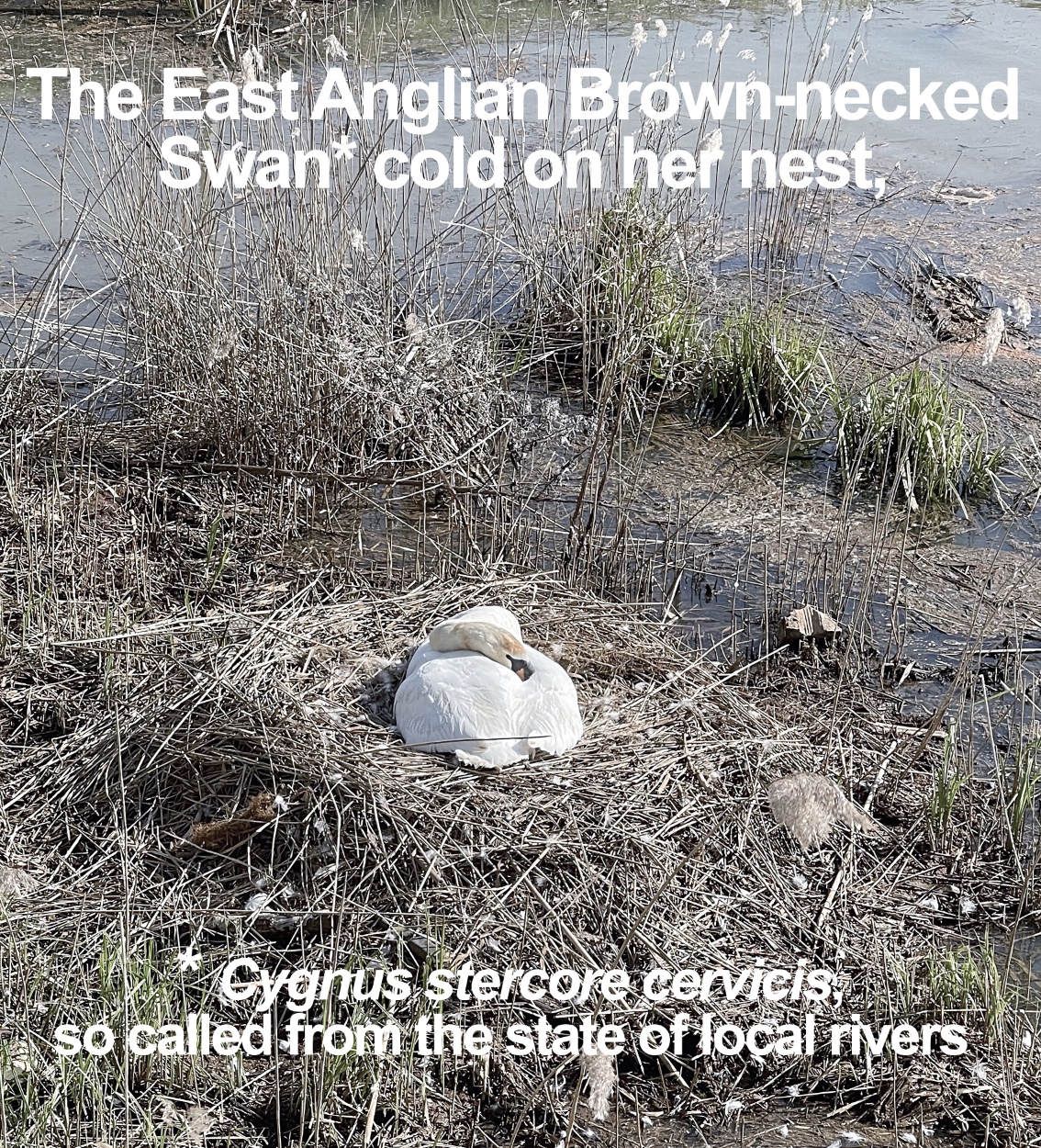 |
|
|
|
My Dear Americans,
No!...No! Inspiration comes upon me un announced!! ...
My Dear Yanks,
We should give thanks.
The springing Spring
Like anything,
In flow'ry ranks.
I know, I know, amidst general rejoicing that I haven't hairimeraku'd in your general direction for ages, I'm at it again, but you know how it goes, in the spring an old man's fancy lightly turns to thoughts of poetry, or at least verse (if not worse). Here in Beccles we have finally had the first few delightful spring days, and they were, surprisingly, well within the traditional month's delay after the first day of spring, though, of course and also rather traditionally, just as soon as I started waxing poetic, or at least versy (if not worsey) about the final emergence of fine weather; so did the rain start so I've got to go all hairimerakuish again
The dull spring rain
Drips down the drain
No Sun
No fun
What a bloody pain
Anyway, since you've been so long un-hairimerakued that you've luckily forgotten all about the damn things and you are probably almost over your PPTSD (you know, Post Poetical Trauma Stress Disgust), I'll take a moment to remind you (even if you don't want me to!).
The Hairimeraku emerged in the Japan of the sixteenth century when a group of Irishmen led by Take O’Takemeasiam left Limerick, or possibly County Clare (the origin traditions vary) to avoid the potato which had just been introduced from the Americas for use as an instrument of Saxon oppression. They quickly became partly acculturated to their new home, the prime indicator of this being in their poetry, the melding of the Haiku and the Limerick. Take, who had adopted the Nihongo name Moshemoshe Dareno-otakudesuka, the name by which history celebrates him, became the acknowledged master of this form that so elegantly combined the syllable count, succinctity and seasonality of the former with the rhyme scheme, occasional humour and salaciousness of the latter.
Ooh and the damn weather has turned again, this time to windy and really cold
 Swan on nest Swan on nest
Needs a vest
The blust'ry cold
Soon gets old.
She has no zest.
Anyway the Hairimeraku typically has around 17 syllables and three sections (phrases of perhaps thoughts) with a Limerickoidal rhyme scheme of AABBA
My Lord!! weather's changed again? Blimey, it can't be?...
Is that hail?
So small and pale
It fades away
And doesn't stay
Just a stale hail fail.
Sadly, over time the technical and artistic demands of this medium made it's practitioners fewer and fewer, so that by the first quarter of the 21st century it had become moribund only indulged in by a few foolish and incompetent souls who were incapable of mastering more modern forms like free verse or rap.
Oh! Finally! I think it's turning out nice and springlike! The birds are singing. The sky is blue...
Like Hydes and Jekylls
Spring in Beccles
Really random
In gay abandon,
So "What the Heckles."
So before it gets bad again I'd better say.
Kindest regards,
Richard Howland-Bolton
and, of course,
Cheerio for now
from me!
|
Notes:
If you haven't already been put off the Hairimeraku, this should do the job:
Hairimeraku
And if that doesn't, there's this:
Hairimeraku Two
And of course this:
Hairimeraku Trek III: The Wrath of Camus
The management accepts no responsibility for any physical, psychic or poetical damage done by visiting these pages.
|
 |
 |
<-- Go Back |
|
|

| Home | Essays | Notes | Gallery | Miscellany | Contact |
All contents including writing, cartooning, music, and photography unless otherwise specified are
copyright © 1965-2023 howlandbolton.com and Richard Howland-Bolton. All Rights Reserved.
All logos and trademarks on this site are property of their respective owners. | Web work* by 
*as distinct from Wetwork
  |
|
|

